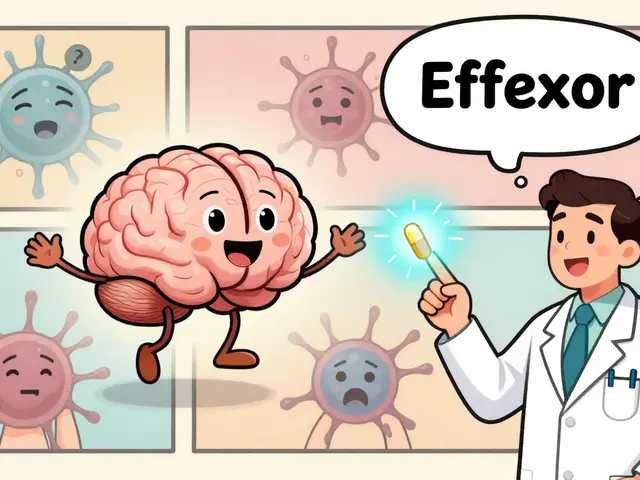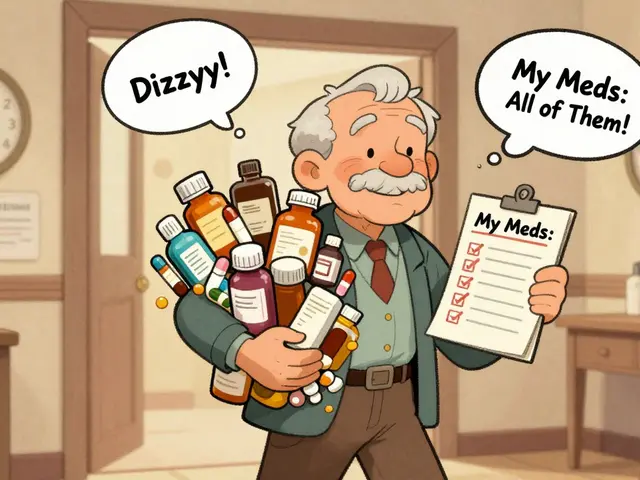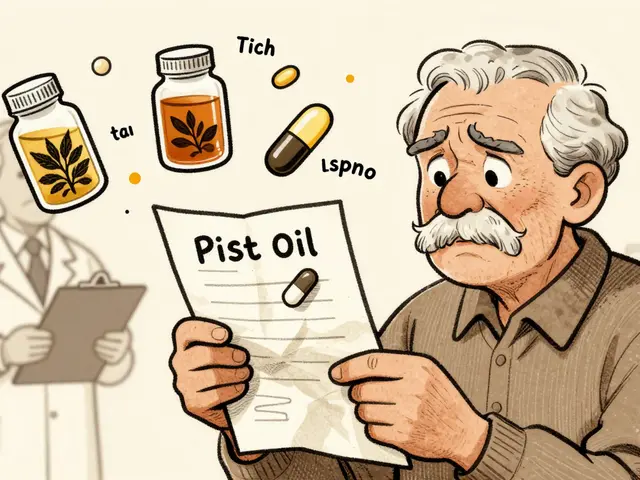Understanding Tenofovir Alafenamide (TAF) and Tenofovir Disoproxil Fumarate (TDF)
As a seasoned blogger in the health and wellness industry, I have seen various medications come and go. However, there are those that stand out for their efficacy and significant impact on patients' lives. Two such medications are Tenofovir Alafenamide (TAF) and Tenofovir Disoproxil Fumarate (TDF). These two drugs are primarily used in the treatment and management of HIV and Hepatitis B virus. Although they are similar in many ways, there are notable differences between the two, which have led to TAF being preferred over TDF in some cases.
The Side Effects of Tenofovir Disoproxil Fumarate (TDF)
Like all medications, TDF has its share of side effects. The most common ones include nausea, vomiting, and diarrhea. However, it is the long-term side effects of TDF that have raised concerns among healthcare professionals. Prolonged use of TDF has been linked to kidney damage and bone density loss, which can lead to osteoporosis. These side effects can be detrimental, especially for aging HIV patients, making it necessary to consider alternative treatments.
The Safety Profile of Tenofovir Alafenamide (TAF)
Enter TAF, a newer formulation of Tenofovir. The primary advantage of TAF over TDF is its improved safety profile. Numerous clinical studies have shown that TAF has a lower risk of causing kidney damage and bone density loss compared to TDF. This is because TAF is more efficiently absorbed into the cells where the HIV virus replicates, meaning that lower doses can be used to achieve the same antiviral effect. Lower drug levels in the bloodstream result in less exposure to the kidneys and bones, reducing the risk of side effects.
Effectiveness of TAF vs TDF
But does a safer profile mean less effectiveness? The answer is no. Studies have shown that TAF is just as effective as TDF in suppressing the HIV virus. Some studies even suggest that TAF might be more effective in certain patient populations. Therefore, by switching from TDF to TAF, patients can maintain the same level of viral suppression while reducing their risk of long-term side effects.
The Future of HIV Treatment
With the advent of TAF, the future of HIV treatment looks promising. While TDF has played a significant role in managing HIV and will continue to be an important medication, TAF offers a safer alternative for many patients. It's important to note that the choice of medication should always be individualized, considering the patient's overall health, lifestyle, and potential for drug interactions. If you are currently on TDF and considering switching to TAF, I strongly advise discussing this with your healthcare provider. They can guide you through the process and ensure that you are making the best decision for your health.










TAF seems like a solid upgrade for many patients.
While the pharmacokinetic advantages of TAF are well‑documented 📊, one must also weigh the cost implications for healthcare systems. Additionally, the transition requires careful monitoring of renal function and bone mineral density.
In the grand tapestry of medical progress, the emergence of Tenofovir Alafenamide represents a subtle yet profound shift in therapeutic philosophy.
One could argue that the very essence of drug design is rooted in the pursuit of maximizing efficacy while minimizing collateral harm.
TAF, by virtue of its enhanced intracellular delivery, fulfills this ideal with a grace that belies its chemical simplicity.
It stands as a testament to the ingenuity of researchers who dared to question the status quo of Tenofovir Disoproxil Fumarate.
The reduced renal toxicity observed in longitudinal studies is not merely a statistical artifact, but a genuine improvement in patient safety.
Moreover, the preservation of bone mineral density offers a tangible quality‑of‑life benefit, particularly for aging populations.
Critics who cling to legacy regimens often overlook the socioeconomic burden of managing chronic complications.
When the cost of dialysis or fracture repair is factored into the equation, the modest price differential of TAF becomes negligible.
From a national perspective, embracing safer antiretrovirals aligns with the broader goal of sustaining a healthy workforce.
It also reflects a patriotic commitment to advancing healthcare standards within our borders.
The pharmacodynamics of TAF illustrate how a lower systemic exposure can achieve comparable viral suppression.
Clinical trials repeatedly demonstrate non‑iniferiority in virologic outcomes, dispelling myths of compromised potency.
Thus, the narrative that safety and efficacy are mutually exclusive is fundamentally flawed.
Healthcare providers must champion evidence‑based transitions rather than succumb to inertia.
In sum, Tenofovir Alafenamide epitomizes the harmonious convergence of scientific rigor and compassionate care.
Such lofty prose hardly masks the underlying reality that many patients still lack access to these newer formulations.
Hey folks, I totally get the worry about switching meds – it can feel like stepping into the unknown, but honestly the data shows TAF is kinder on kidneys and bones, which is huge for long‑term health 🙌.
Sure, but don’t forget the pharma giants profit from pushing the “new” drug while hiding long‑term side effects that they haven’t even studied yet.
Embracing TAF is a win‑win: patients enjoy improved safety profiles, and clinicians can confidently prescribe without fearing renal compromise 🚀. Let’s keep the momentum going.
While your enthusiasm is appreciated, note that “win‑win” should be hyphenated, and “renal compromise” is a more precise term than “kidney problems”.
It would be remiss to accept the superiority of TAF without a thorough cost‑benefit analysis, particularly in low‑resource settings where budget constraints dictate formulary decisions.
Indeed, the transition to Tenofovir Alafenamide, while seemingly advantageous, must be examined through the prism of real‑world applicability; one cannot simply assume that the theoretical reductions in renal toxicity and bone demineralisation will translate seamlessly across diverse patient populations, especially when the infrastructure for monitoring and follow‑up is variable and potentially inadequate; therefore, clinicians should adopt a measured approach, weighing individual patient histories, comorbidities, and socioeconomic factors before instituting a wholesale shift in antiretroviral therapy protocols.
Honestly, if you’re still clinging to TDF, you’re basically endorsing a toxic relic that drags patients into a vortex of renal failure and skeletal decay – a grim fate that any savvy clinician would reject.
Listen, I’ve read every study out there and can tell you that the only reason some doctors hesitate is because the pharmaceutical lobby whispers sweet nothings about price, not because TAF lacks efficacy.
From a pragmatic standpoint, the switch to TAF has been widely adopted in many clinics with minimal disruption, and the monitoring protocols remain largely the same as with TDF.
It’s disheartening to see patients forced into a decade‑long battle with side effects that could have been avoided with a simple regimen change.
For anyone considering the transition, discuss with your provider, review your lab results, and make an informed decision that aligns with your health goals.
One must contemplate the epistemological ramifications of privileging molecular precision over pharmacoeconomic pragmatism, lest we succumb to a myopic fetishization of novelty.
I’ve seen patients flourish after moving to TAF, reporting less fatigue and better overall wellbeing, so don’t hesitate to ask your doctor about it.
TL;DR: TAF = lower renal toxicity + bone safety, same viral suppression; consider it if your regimen allows.